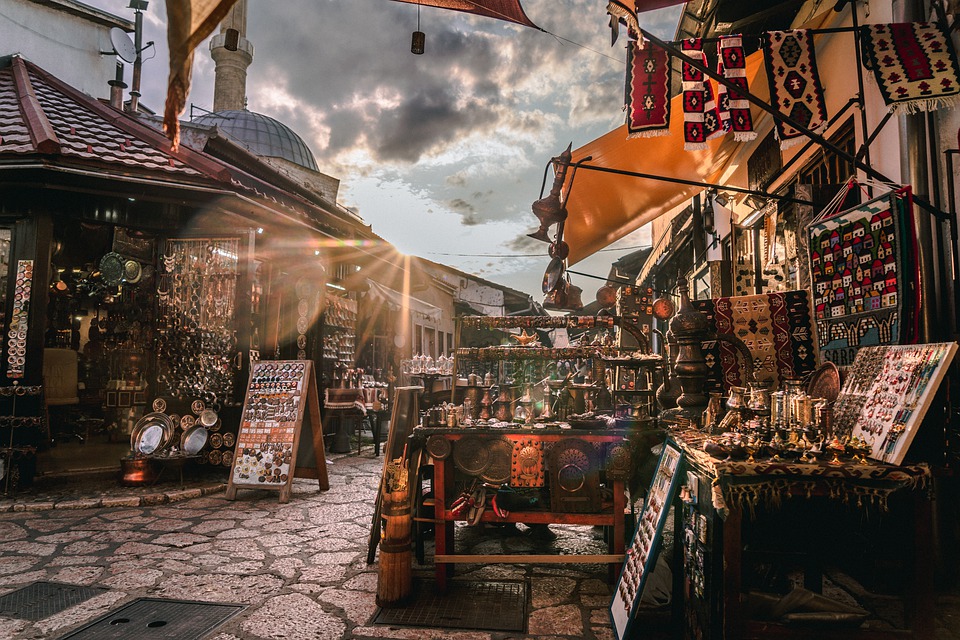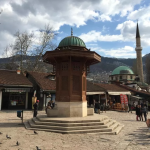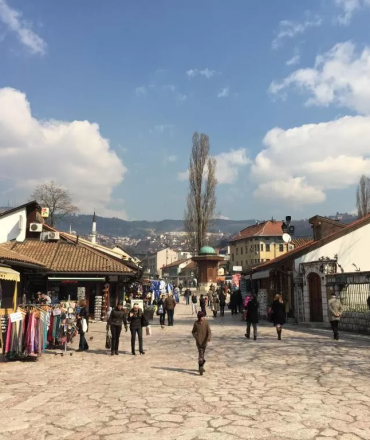Sarajevo is the political, financial, social and cultural center of Bosnia and Herzegovina and a prominent center of culture in the Balkans, with region-wide influence in entertainment, media, fashion and the arts.
Due to its long history of religious and cultural diversity, Sarajevo is sometimes called the “Jerusalem of Europe” or “Jerusalem of the Balkans”. It is one of only a few major European cities to have a mosque, Catholic church, Orthodox church and synagogue within the same neighborhood. A regional center in education, the city is home to the Balkans’ first institution of tertiary education in the form of an Islamic madrasa, today part of the University of Sarajevo.
Although settlement in the area stretches back to prehistoric times, the modern city arose as an Ottoman stronghold in the 15th century. Sarajevo has attracted international attention several times throughout its history. In 1885, Sarajevo was the first city in Europe and the second city in the world to have a full-time electric tram network running through the city, following San Francisco. In 1914, it was the site of the assassination of Archduke Franz Ferdinand of Austria by local Young Bosnia activist Gavrilo Princip that sparked World War I, which also ended Austro-Hungarian rule in Bosnia and resulted in the creation of the Kingdom of Yugoslavia.
Later, after World War II, the establishment of the Socialist Republic of Bosnia and Herzegovina within the Second Yugoslavia led to a massive expansion of Sarajevo, then the constituent republic’s capital, which culminated with the hosting of the 1984 Winter Olympics marking a prosperous era for the city. However, after the start of the Yugoslav Wars, for 1,425 days, from April 1992 to February 1996, the city suffered the longest siege of a capital city in the history of modern warfare, during the Bosnian War and the breakup of Yugoslavia.
Sarajevo has been undergoing post-war reconstruction, and is the fastest growing city in Bosnia and Herzegovina. The travel guide series Lonely Planet has named Sarajevo as the 43rd best city in the world, and in December 2009 listed Sarajevo as one of the top ten cities to visit in 2010. In 2011, Sarajevo was nominated to be the 2014 European Capital of Culture and in 2019, it hosted the European Youth Olympic Festival. In October 2019, Sarajevo was designated as a UNESCO Creative City for placing culture at the center of its development strategies, and is one of the world’s eighteen Cities of Film.



